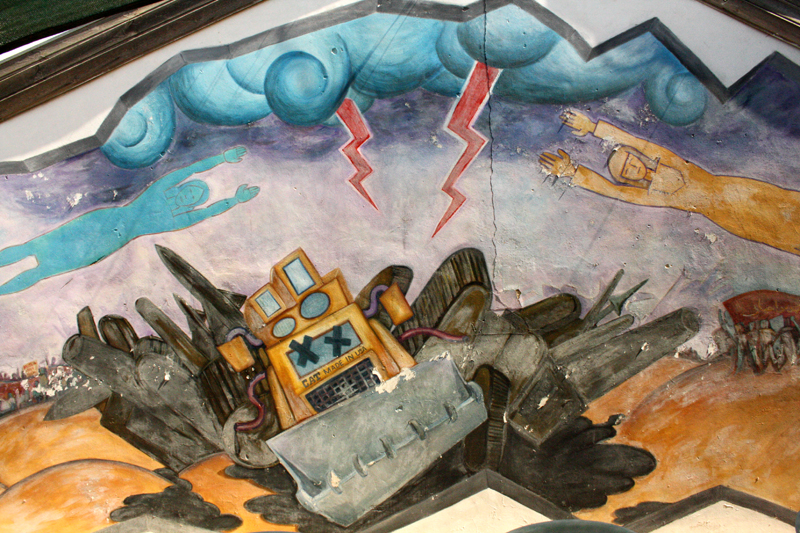
Palestinian homes are being demolished on an ever-increasing scale. Construction of Israeli settlements is accelerating in key strategic parts of the West Bank. The occupation is being expanded and strengthened, violating international law – yet the imperialist powers continue to fund Israel.
Each individual demolition is an example of the violence and destruction imposed upon the whole Palestinian people. Salim Shawamreh and his family have already lost their home four times. Four times their belongings have been bulldozed, and the entire family made homeless. Arabiya, Salim’s wife, suffered extreme stress, unable to speak after the first demolition. Their children have all shown signs of trauma. This, of course, is not an isolated incident. Rather, house demolition is a daily issue in Palestine and increasingly so for Palestinians living within Israel itself. The Shawamrehs were unable to move into their home the fourth time it was rebuilt, with its memories of destruction and violence. They decided to dedicate the house to the community – ‘Beit Arabiya’ (the house of Arabiya) became a hub of resistance, education and solidarity. The Israeli Committee Against House Demolitions (ICAHD) had rebuilt the house alongside the family each time – in summer, rebuilding participants stayed in the house with Salim and Arabiya. On 23rd January 2012, this was bulldozed for the fifth time. ICAHD members were instantly at the scene, only to be beaten by the army and police. Women came under particular attack, with sexualised taunts. The bulldozers didn’t stop there, but carried on to destroy the Jahalin Bedouin enclave close by; six homes were destroyed and most of the animal pens.
Of course, each individual demolition forms part of a wider policy of ethnic cleansing. Almost twice as many people were displaced in 2011 compared with 2010. 1,094 people were left without homes. It is not only homes that are destroyed, but also structures – which of course has a wide impact on the wider community. Soldiers, trained to target water resources, shoot at UN-provided water tanks, leaving whole communities without access to water. Last year, 622 Palestinian structures were destroyed by the Israeli authorities. At the same time, new Israeli settlements are being announced by the government at a terrifying rate; placed in areas set to cause the maximum damage. Settlements such as Ma’ale Adumim threaten to divide the West Bank entirely.
In summer 2011, I visited Anata, north-east of Jerusalem and under full Israeli control (Zone C). I travelled as part of an ICAHD rebuilding camp, and stayed in Beit Arabiya, before its destruction. Alongside ICAHD members, international activists, and locals, I helped to rebuild another home belonging to Abu Omar and it was a privilege to work alongside the family.
The house was built as an act of resistance, in direct opposition to house demolitions. International activists came together to gain a greater understanding of the occupation, in order to document and expose the realities back home. We heard the story of the family we built with. Their home was demolished in 2005 on the morning of the daughter’s wedding. The family were offered no alternative housing and no compensation, breaking international law. The family of fifteen were forced to live with their neighbours for six years. Finally, after two weeks of intense building, the family had a home again.
This home was destroyed five months later, the same night as Beit Arabiya. ICAHD has vowed to rebuild these homes, and have explained how the demolitions were targeted on those resisting. Jeff Halper, founder and co-director of ICAHD, explains that it is similar to the ‘Price Tag’ attacks, were Zionist settlers leave threatening messages on Palestinian property that they have destroyed:
‘The IDF attack on three sites that for years have been identified with ICAHD’s resistance activities was clearly an official, government-sponsored, violent Price Tag assault on Palestinians in order to “send a message” to ICAHD. Out of the tens of thousands of demolition orders outstanding in the Occupied Territory, they chose these three. In fact, the “message” had already been delivered. Already at the second demolition of Beit Arabiya in 1999, Micha Yakhin, the Civil Administration official responsible for overseeing the demolitions in that part of the West Bank, told me: “We will demolish every home you rebuild.’
Whilst I would love to return to Anata and rebuild again, it is clearly only one way to stand in solidarity with the Palestinian resistance, and one that takes privilege to undertake. It is vital that solidarity is consistent and powerful here in Britain, the heart of imperialism – and with each house demolition there, our anger is expressed here, in meetings, discussions and on the streets.
The Palestinian people have called for activists around the world to Boycott, Divestment and Sanction (BDS) – it is our role to expose and oppose the businesses and governments that support the expansion of the Zionist state of Israel. Positive lessons and examples can be gained from the boycott movement that opposed apartheid South Africa – the non-stop picket of the South African embassy in London is an inspiring example.
BDS becomes ever more urgent as imperialist powers compete over more and more of the Middle East; at a time when military intervention happens virtually unopposed by the public in the countries responsible. Solidarity with Palestine is vital – not just because of the disgusting injustice and violence that takes place, but because in resisting in Britain we challenge imperialism at its heart. The same companies that support occupation profit from exploitation, oppression and looting around the world.
We can take inspiration from the daily resistance of the Palestinian people to resist here. Imperialism is destroying our planet and humanity – from the occupation of Palestine, to the cuts to vital services in Britain, it is our duty to fight it wherever we can.




